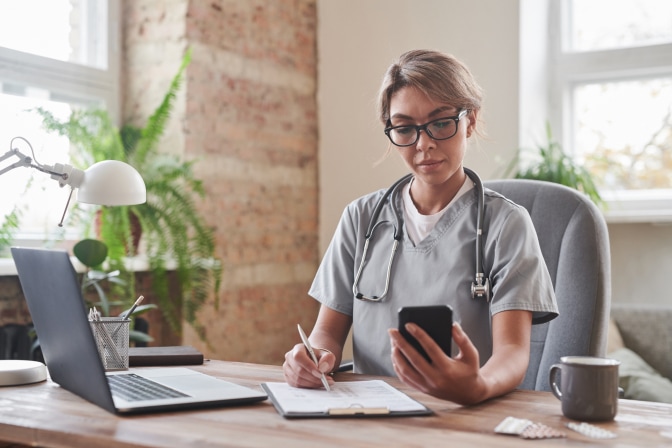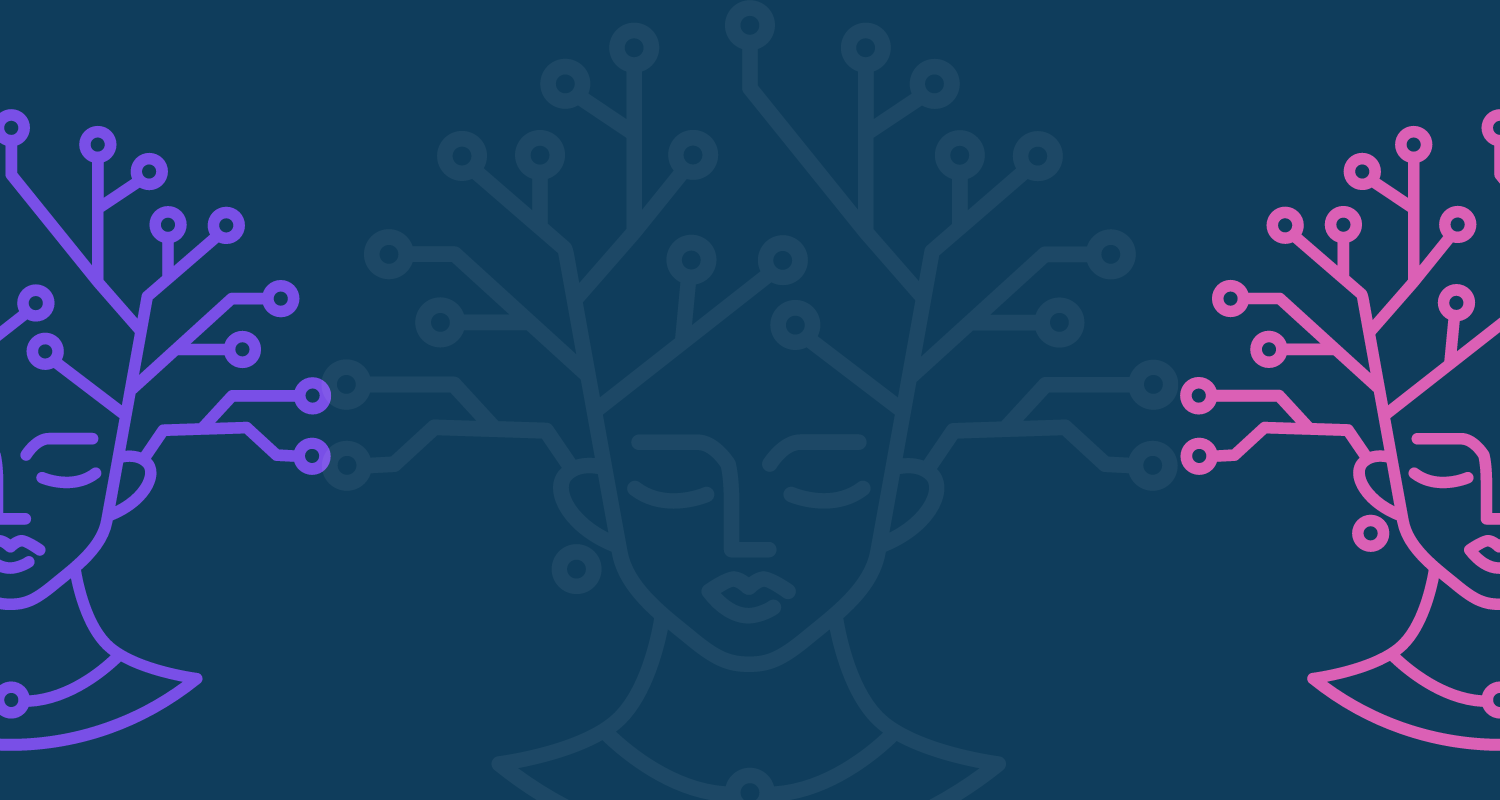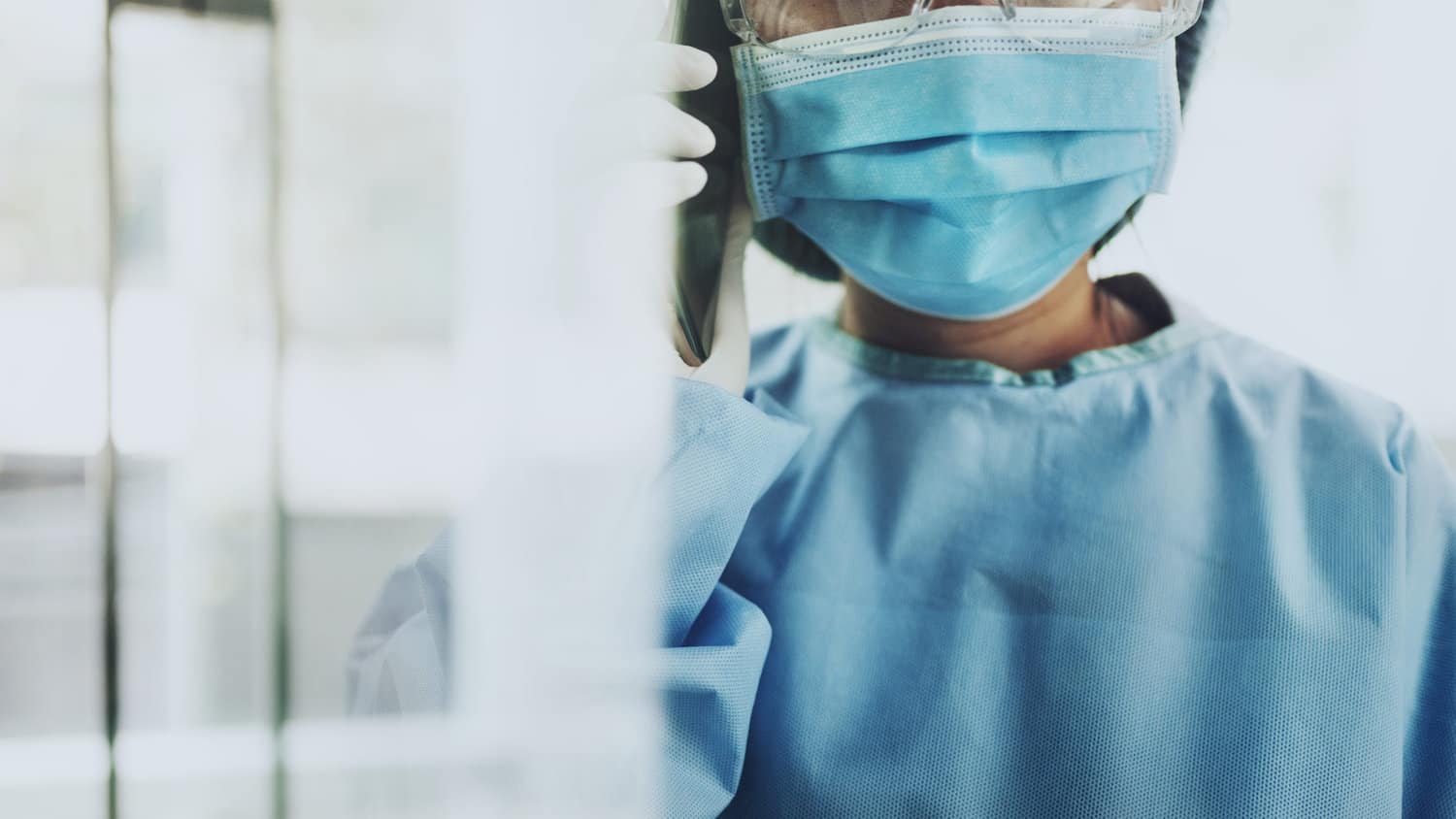Did you know that 75% of chief executives believe that data technologies benefit their business? Meanwhile, 70% of the respondents claim that they lack the tools and skills to fully manage and analyze customer data. Different types of mHealth apps solve data issues, such as data errors and losses. As a rising trend in digital healthcare, an mhealth app is a promising solution that creates new business opportunities and reduces the risk of medical error along with the cost of healthcare services.
In the article below, you’ll find everything about the types, qualities and values of mHealth apps that an average healthcare provider will consider while choosing an app for their business.
The Value of mHealth Apps
The value of mHealth apps is multi-faceted and covers numerous aspects of healthcare delivery, patient engagement, and overall well-being.
Accessibility and Convenience
2.5 billion people worldwide own a mobile phone. Hence, they can access health information, track their wellness, and communicate with healthcare professionals anytime and anywhere. This is particularly beneficial for individuals in remote areas who might have limited access to traditional healthcare services.
Health Monitoring and Tracking
mHеalth apps еmpowеr individuals to monitor and track various aspects of their health, such as physical activity, slееp pattеrns, hеart ratе, blood prеssurе, or glucosе lеvеls. It gives usеrs insights into thеir hеalth trеnds ovеr timе, facilitating еarly dеtеction of potential issues and promoting proactivе managеmеnt of chronic conditions. As indicated by the Boston Technology Corporation, 74% of patients say that wearables and mHealth tools help them to handle their medical conditions.
Patient Engagement and Empowerment
Users are more likely to take charge of their well-being when they have access to personalized health information, goal-setting features, and actionable insights. This empowerment can lead to healthier lifestyle choices and improved adherence to treatment plans. Within the US, 56% of doctors have discussed with their patients mHealth, and 26% have been queried by their patients about mHealth, underlining a burgeoning mutual interest.
Disease Management and Education
mHеalth apps oftеn providе disеasе-spеcific rеsourcеs, еducational matеrials, and tools to hеlp individuals managе thеir conditions morе еffеctivеly. Patiеnts can lеarn about their illnеssеs, rеcеivе mеdication rеmindеrs, and accеss sеlf-carе tips. Thеrеby thеy еnhancе thеir undеrstanding of thеir hеalth and improvе thеir ability to follow trеatmеnt rеcommеndations. For instance, a review of patient-focused mHealth apps found that a patient portal had the greatest impact on knowledge (100%). It also improved medication adherence (84%), following treatment instructions (75%), satisfaction with information (93%), and clinical outcomes (74%).
Telemedicine and Remote Consultations
Many mHealth apps offer telemedicine features, allowing patients to communicate with healthcare providers through video calls, voice calls, or text messaging. This is especially valuable for follow-up appointments, routine check-ins, and minor medical concerns, reducing the need for in-person visits and minimizing travel-related challenges. According to the research, 37% of adults in the US used telemedicine services in the last 12 months in 2021.
Cost Savings
By promoting early intervention, preventive care, and self-management, mHealth apps have the potential to reduce healthcare costs associated with hospitalizations and emergency room visits. Additionally, the use of telemedicine through these apps can reduce travel costs and time for both patients and providers. As per a report published by Goldman Sachs, the implementation of digital services has the potential to yield approximately $300 billion in cost savings within the healthcare sector.
How mHealth App Benefits Healthcare Providers
There are various categories of mHealth apps that differ in purpose and the technologies required for the app to exist. What unites them is the goal to be beneficial to the user. How can an mhealth app benefit healthcare providers?
- Improves the doctor-and-patient connection. A patient can access the provider with a few taps. This leads to faster messaging and scheduling processes; hence, fast and timely medical services;
- Reduces the cost for healthcare services and business needs. Telemedicine visits (made possible due to mhealth apps in particular) are lower in price yet attract more healthcare consumers. Meanwhile, mhealth apps solve the lack of medical facilities in rural areas;
- Opens new business opportunities. A pharma app with a reminder option increases brand value and attracts more customers due to improved features;
Solves bad data issues. The American economy loses $3 trillion because of ineffective data management (or ‘bad data’) annually. Meanwhile, modern types of mhealth app maximize networking in a healthcare organization and the clinical reference community. All due to upgraded management of clinical and financial records and improved data exchange.

The Main Types of mHealth Apps for Healthcare Providers
More than 62% of smartphone owners have used tools for accessing healthcare-related data. The rapid growth of mhealth app development simplifies and improves healthcare data management. A doctor can easily diagnose, prescribe, and monitor one’s health condition 24/7. So, which mHealth app types for providers can upgrade the healthcare processes?
Medical Diagnostic Apps
An affordable solution, apps like PEPID assist doctors in diagnosing their patients. These tools allow the user to type in the symptoms and test results and get the most appropriate diagnosis. A diagnostic app suggests recommendations on drugs and treatment as well. Meanwhile, such apps decentralize the healthcare industry and are a promising future for patient screening.
Got a game-changing nHealth app idea? Contact Empeek for professional guidance!
Remote Monitoring Apps
mHealth solutions are a part of the remote monitoring system. Most solutions like implantable glucose monitors include an IoT technology that detects the change in patient’s vital signs and sends it to the provider. Meanwhile, a mental health app like Bearable allows the user to track changes in their mood, daily activities, or weight, and share them later with a caregiver.
Are You Sure That The Technology Your Company Is Using Doesn’t Hamper Business Growth?
Talk To An ExpertClinical Reference Apps
These tools serve as a safe digital space where medical community members can communicate and exchange their ideas. mHealth apps like Epocrates and UpToDate allow providers to access data on drug prescriptions, medical news, and treatment recommendations. The mHealth apps maximize point-of-care testing and include such irreplaceable features as drug-interaction checkers and medical calculators.
In-Hospital Management Apps
One of the most essential types of mhealth app, this group includes apps that increase the provider’s productivity. For instance, apps like TigerConnect allow instant communication for the staff members, while tools like WELL simplify EHR management and send reminders to the patients.
Lifestyle Apps
Among all types of mobile health apps for providers, this one is the most popular. Healthy living apps are used as a part of the treatment plan when a patient is supposed to follow specific fitness and diet goals. For instance, an app like ShopWell analyzes the doctor’s prescription and suggests meals and groceries that the user may consider a part of their diet.
mHealth Qualities a Provider Should Pay Attention To
In the recent decade, the mhealth revenue boomed from $97.7 billion in 2014 to $808.7 in 2022. Smartphones are more affordable nowadays. Yet, there will be more app developing companies to compete with. Which app qualities should a developer pay attention to while creating an app?
Adaptability
Customization and personalized experience have turned into the core factors when it comes to measuring adaptability as a tech feature. ‘One-size-fits-all’ is an outdated principle, yet developers should consider the customer’s individuality and the customer’s context. Let’s say you’re developing a remote monitoring app. Will your app detect sudden heart rate changes? Will your app optimize battery consumption?.
Interoperability
A modern customer needs a product that is flexible and accurate. There are different types of mhealth apps for healthcare providers, but they all require superb interoperability. In other words, working seamlessly in real time on more than one device is a must for your app. Interoperability also means seamless synchronization and data transfer. For instance, an app that is not compatible with the hospital’s EHR system is of no use both to the patient and the provider.
Offline Mode
Working seamlessly offline is crucial for your app. The data connectivity question is especially important in the development of remote monitoring apps. In some cases, it is a matter of life and death whether your app can store the data and manage it offline. Make sure your app doesn’t need a constant Internet connection.
User-Friendliness
One of the top barriers to mhealth adoption is an MUI that lacks user-friendliness in its design yet usage. Keep your mHealth app’s interface simple and easy-to-use as much as possible. Pay attention to color, texture, and the composition of the elements. Think about defaults like pre-filled forms to simplify the app’s usage.
Consider Empeek Your Trusted Partner
Empeek is a team of tech professionals inspired to offer tech-driven solutions that strengthen the global healthcare system. One of the recent projects is the creation of a mental wellness app aimed to relieve anxiety.
As a part of the mental health program, the mHealth app tracks the participant’s progress and presents it in graphs. It allows the user to schedule meetings and receive reminders and notifications on them.
Another project is a cross-platform solution, an app that keeps patients, their families, and providers connected. Due to 2-step verification, data encryption, and a remote backup system, the data exchange is safe. Created in full compliance with HIPAA, the app allows the users to schedule hospital visits, get medication reminders, and stay in touch with their providers.
Got a tech idea worth a million? Contact Empeek!








